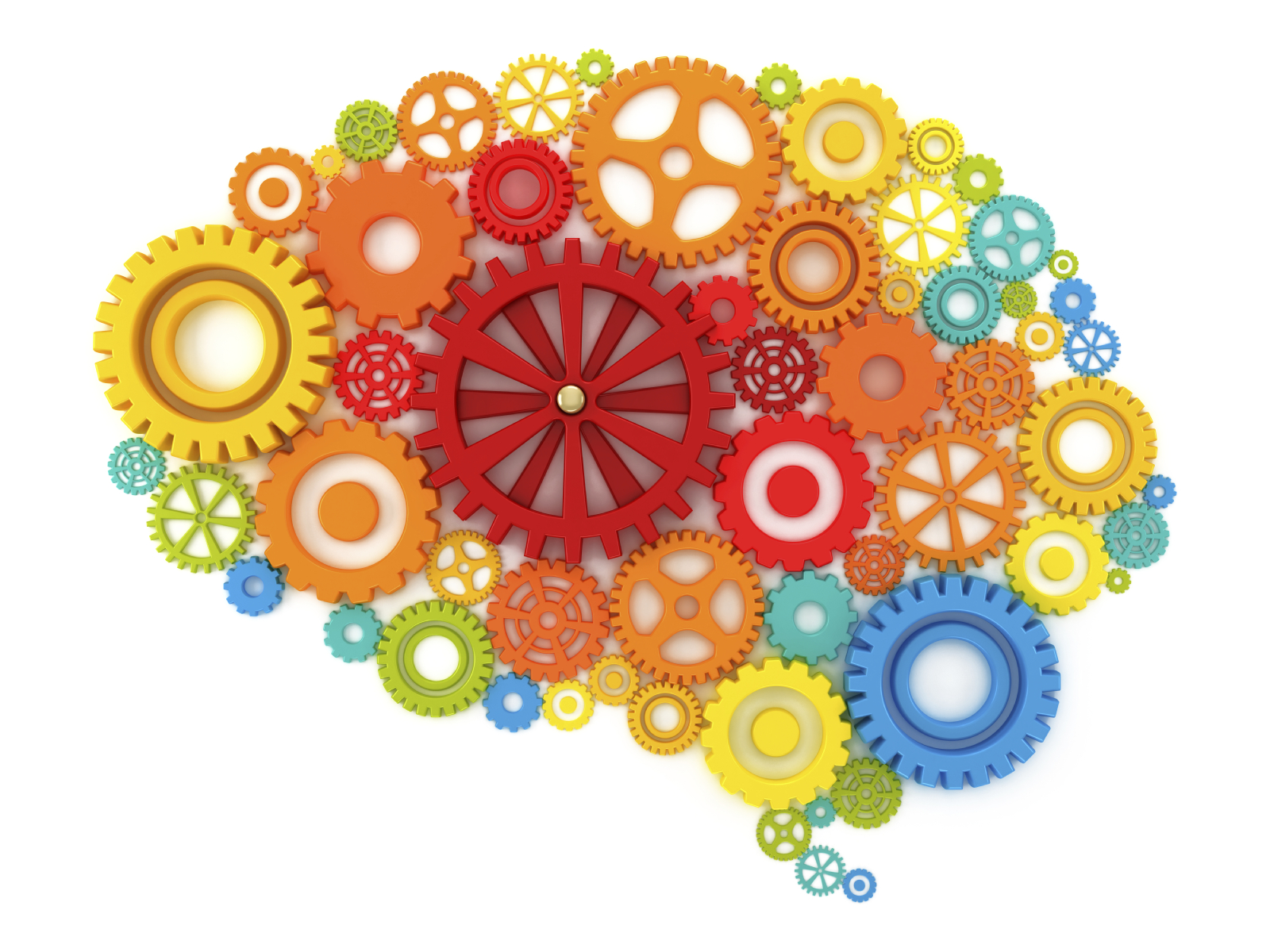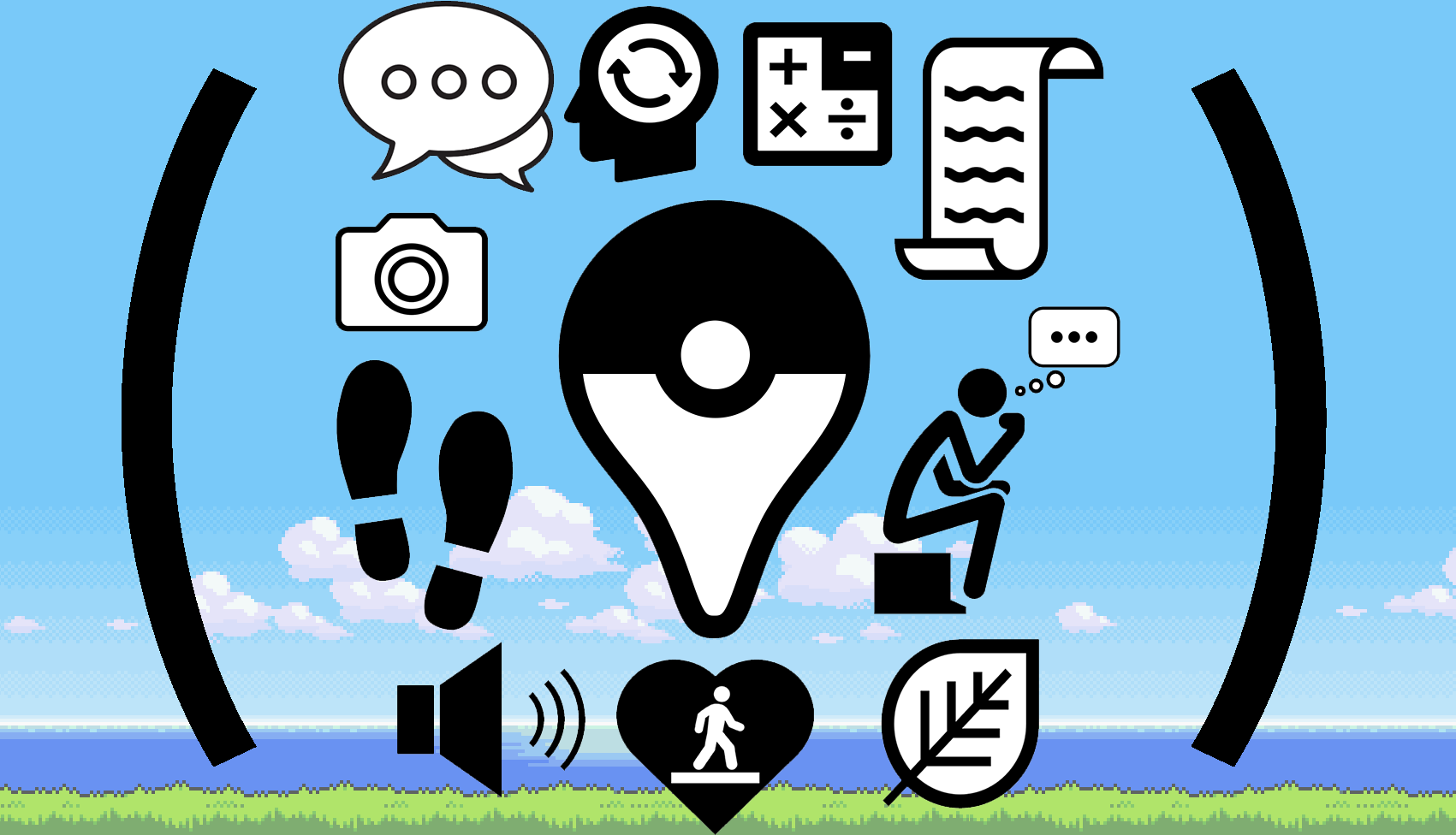A colleague and I have had a paper that we presented at an Asia Pacific Autism Conference some years ago just published in a Routledge textbook titled 'Gaming Disability: Disability Perspectives on Contemporary Video Games.
Autism Radio Interview - 1233 Newcastle
Today, I want to unpack a condition that affects at least one in 70 Australians, a condition that we hear about, that we might even judge but don't necessarily completely understand. Let's look right now at the autism spectrum. And to help me understand what this is and how we can better support people living with autism, I'm joined by Craig Smith. He's the school coordinator at the Aspect Hunter School. Craig, good morning.
Assistive Technologies, Active Participation: Riding Bicycles for the Mind (#WAAD19)
Every year the United Nations sets a theme for World Autism Awareness Day. The theme for this year is ‘Assistive Technologies, Active Participation’. At first, the definition of the term assistive technologies might seem quite obvious — you might think of technology like a hearing aid to support someone with hearing related needs, or perhaps even a motorised wheelchair to help with physical access. These are definitely pieces of assistive technology, but what else fits into this space, and how does assistive technology relate to autism?
Universal Learning in Dubai
I have just returned from a week in Dubai, presenting at a summit on accessibility and inclusion. I was fortunate to be invited to present the closing keynote on both days of the summit, as well as to collaboratively deliver practical workshops across the event. Undoubtedly the most enriching part of the experience was the opportunity to collaborate with peers who I have met in other parts of the world previously, for us to find ourselves in Dubai and to share the work we have built up through our practice across the areas of special education, accessibility and universal design. In this brief summary I will recount some of what I spoke about at the event, as well as what was shared by my colleagues, and other experiences that connect with the outcomes of the summit.
Autism + Coding + Music in Singapore
I have just returned from a big week of work in Singapore — I was fortunate to have been invited to present workshops to individuals on the autism spectrum, their families, educators, service providers, therapists, psychologists, and members of the Singapore Ministry of Education, across a broad range of focus areas. I was also privileged to have been invited to deliver a fun ‘Today at Apple’ interactive workshop to the public as my final session of the week before flying back to Australia. I provide here a brief summary of some of the workshops I delivered and some of the resources I shared.
ARKit and Autism: New Futures
In September the new operating system for mobile Apple devices, iOS 11, will likely be released, and with its release will come a new world of apps that build on the new development platform that Apple has created, ARKit, which puts unprecedented opportunities to develop augmented reality solutions in the hands of the world. We have already seen some spectacular demonstrations of what ARKit is capable of, and as always when new technological opportunities present themself, I consider what this could mean for the world of autism support and the education of children on the autism spectrum.
Jamming with Skoog
I adore music. While there are too many artistic and sensory delights to hold in ones mind at any one time with regards to the wonder and beauty that the history of creativity have so far conjured, for me there is little competition for the central seat that music has in my consciousness. It is both a mystery that requires no preconditions upon it to make concrete sense or relate to anything that we perceive within our big real, but at the same time it is but a simple bird song that can be divided into equal measures and learned by an infant repeating the rhythms of a rhyme.
Reaching All Learners - 90 Minute iPad Workshop
As ubiquitous as iPad implementation is across so many education settings, we must make sure that we continue to understand the most effective and forward thinking modes of classroom use that will realise the greatest value of the device. On the back of my 2017 iPad Toolbox for Special Educationpost that has gained a lot of interest this past month, I present here a summary of content and topics that I cover in a ninety minute version of my 'iPad Model Classroom' full day course. You might find ideas below that you could utilise in your own staff development sessions, or it might lead you to seek out other examples of the practices noted so you can build them into your own teaching repertoire.
Everything All of the Time: Goals and Chronos
There is a moment in Debra Kidd’s ‘Becoming Mobius’ where a year seven student, Neil, is asked by Debra to tell a classroom full of parents what it is that he has learned about immigration and multiculturalism from a new curriculum model that has been recently implemented. There is a long pause, and while other students excitedly raise their hands to answer the question, and Debra feels the rising imagined voices of the parents as they shift uncomfortably and want to stop the seeming endless void of time that is being presented by Neil’s silence, there is a very particular sense of ‘big time’ that passes into resolution as Neil finally speaks and provides a wonderfully wise response that then sets into motion a series of responses from other students that secures the success of the question and the event. It feels like within the two poles of language spoken, first by Debra’s question and then with Neil’s answer, there is a period of palpable time that envelops everything that has ever happened or will happen in education. In this silence, the truth is the whole, it is Hegel’s concrete universal, that which ‘with undimmed clearness finds itself at home in its antithesis’. In this case, within the silence there is all the noise of what we might be trying to do when we consider the education of young people.
2017 iPad App Toolbox for Special Education
It feels like every week there is another huge leap forward with iPad apps that are released to open up enhanced creative methods with which to engage the educational needs of our students. With over two million available apps, it’s good to have a bit of a guide sometimes before heading in. Since the release of the iPad I have worked on putting together the best collections of apps that work well specifically for students on the autism spectrum - on my website here you will find all of the free books, iTunes U courses and blog posts that detail the innovative ways we use iPad across our Aspect Hunter School for children with autism. Two books, ‘The iPad Model Classroom’ and ‘Minecraft in your Classroom’, are terrific introductions to our methods. You can also find our work featured on Apple.com - we are the only school in Australia, and the only special education school in the world, to be featured on the website due to our world class understanding and use of iPad.
Thunderbolt Gunzel
The better a societies capacity to engage authentic dialogues with individuals who vary from the compliant majorital expectations of that society, to open dialogues between individuals with an explicit endgame in sight that individualism will be heightened at the expense of any idealised conformity within that society, the better chance that particular society has for inclusive ends.
Coding for Life
Welcome to 'Coding for Life'. We are Craig and Heath from the Aspect Hunter School in Newcastle, Australia. For us, learning to code is all about learning how to think. Coding is the language that allows you to create programs on a computer, but it is also the language of logical thinking. When you think about the steps involved in brushing your teeth, or packing your bag for school, or building a bed in Minecraft, your braining is using the language of coding.
Two Books in Contrapuntal Motion
I have recently had the pleasure of doing something I haven't had the opportunity to do in a very long time - reading two books back to back, and taking some beautiful rural walks between chapters so as to have the proper time to reflect on the themes being explicated within. Both books were related in topic but were otherwise very different works, and yet there were significant points of contrapuntal motion between both where the themes and narratives moved melodically in relation to one another that it gave me pause to want to briefly share my thoughts on both books side by side.
Autism NZ Tour: Kindness Savant Will Pixelate
For ten days at the end of August I embarked on a working tour of New Zealand in collaboration with Autism NZ. Every two years for the past six years I have visited New Zealand for different arrangements of speaking tours and conference presentations, often with a focus on sharing my particularly variety of focus on utilising the special interests of our students on the spectrum in the classroom, most frequently by way of utilising iPad as central tool in being able to fluidly make this happen across different educational and home settings. This time, rather than just talking about it, the request from Autism NZ was if I could actually go into schools this time and put my words into action, not just talking autism pedagogy, but actually implementing it in classrooms across New Zealand. This was a thrilling proposition that I couldn't say no to.
Explore Everything with Pokemon GO!
Welcome to 'Explore Everything with Pokémon GO'! The launch of Pokemon Go this past week has heralded a gaming experience unlike any I have ever witnessed. Even Minecraft, with its near ubiquitous take up by gamers world wide and continued massive interest in educational spaces and for YouTuber's everywhere, did not have the immediate social impact that Pokemon Go has engaged since its launch. Every day as I leave my house I see huddles of people gathering near PokePoints and Gyms with their iPhones raised and their fingers busy catching and battling Pokemon all across the city. I've never struck up such immediate conversations with random individuals on the street who all had the telling look of another Pokemon Go player. Even though we are less than a week into the game, it seems certain that this game is a phenomenon that is going to be growing and reaching spheres of impact in ways that we perhaps can't yet foresee. But in the meantime, I am having an amazing time playing the game, walking around the city with my daughter as we explore all sorts of new avenues and points of interest in order to catch all the Pokemon.
Better Regulation through Green Walls
The following is an edited extract from 'Kindness Savant Will Pixelate', a tone essay on autism pedagogy I have published this week as a free download from the iBooks Store and from my website.
To my mind, the first responsibility of every educator in a classroom is to get to know each individual child in their care as well as possible. We need to understand each child for the benefit of reasoning what their strengths and their needs are so as to properly understand the role that we are going to have in supporting this child’s education for the time they are with us. There can be an inverse assumption here at times, that it is rather our primary role to help children learn academic subject matter, but it seems this is upside down: we can consider ourselves to truly be educators in so much as we are professionals specialised in learning about the individual children in our classrooms. Connecting the dots of content and learning how to think are wonderful consequences for children but these must take place after the main event, after we teach ourselves about who they are and all the complicating factors that impact upon them in composition of their daily realities. It is only when we know who our children are that we can begin to teach them.
How We Play Within Lines - Skoog and Structure
A fantastic new tactile musical interface for iPad has been released in Australia this past week, Skoog 2.0. It is a soft cube that students can hit, squeeze and twist in order to send signals to the iPad to interact with most any music app, such as GarageBand or creative synth apps like Noise by Roli. When the iPad was released it provided an abundance of new ways for students to perform and compose music, particularly given the visual and tactile modes of interacting with the iPad to play instruments and explore sound in ways that traditional instruments do not so readily allow. There is an inherent accessibility in being able to swipe your fingers across octaves on the iPad screen that is such a physically different experience to otherwise playing notes on a piano, and often the sounds generated in performance iOS apps are more immediately harmonious in giving students a view to extend their performance in successful ways that mature the type of sounds they put together. Not that students should shy away from the beautiful challenge of traditional instruments and even atonality and the musical mastery that results, but there is a contrast here that is fascinating within autism pedagogy to consider: the balance between creativity with success designed in to the experience, and creativity with free outcomes and no feedback built in.
Shanghai's Universal Designs
In December of 2015 I flew from Sydney to Shanghai, with colleague and friend Greg Alchin, on invitation to speak about autism, technology and Universal Design for Learning at two events. The first was for the United Nations, specifically the Economic and Social Commission for Asia and the Pacific arm of the United Nations, at a three day workshop they were hosting in coordination with the China Disabled Persons’ Federation. The second event was a seminar for the Shanghai School for the Blind, with staff from the school joining teaching staff from Pudong Special Education School to participate in a forum on accessibility and the utilisation of special interests in the classroom.
Maker Creations and Maths Calculations
The past six months have been a jam packed cornucopia of experiences that I have not yet taken the time to properly note down and decode. After my last blog entry we launched our iTunes U course on Pixar’s then brand-new movie ‘Inside Out’, an exploration of emotions through iPad activities that sought to engage an understanding of different feelings as portrayed in movie. I was a big fan of the movie upon release, and so too were the students in our school who eagerly went to see it as part of class excursions, as it felt like such a nice way of portraying the struggle to understand our emotions and have them cooperate with you as you go through new and challenging experiences. Our classes quickly took to designing further materials for their classrooms that aligned with the Zones of Regulation program and Green Wall strategies we use throughout our school, and it wasn’t long after this started occurring that I was afforded the opportunity to travel to Singapore and present on this work at the 2015 Apple Distinguished Educator institute. That proved to be an absolutely incredible experience, sourced not only from the joy of sharing new work with a world of inspiring educators pushing at the edges of innovative classroom practice, but also through meeting again my Japanese special educator friends, particularly the perpetually energised Takemi Inada from Taira Special Needs Education School. For special educators, there is a particular sense of isolation that accompanies the job, especially so if you are the only special educator in an otherwise mainstream environment or similar, often with regards to the shared dialogues you could be having with colleagues regarding professional development goals and day to day classroom operations, so it is a wonderful thing at a conference when you get to meet up and relish in the joy of the profession with a fellow special educator.
Autism, Executive Functioning Skills and Apple Watch
This week celebrates Global Accessibility Awareness Day on Thursday 21st May, and provides a valuable opportunity to consider where we are in terms of the utilisation of technology and the inclusive modes by which all varieties of users access this technology. Particularly within the disability sphere, we are afforded the chance to highlight the creative gains made in this space that are allowing individuals around the world to access life on their own terms with the latest technologies at hand.

















